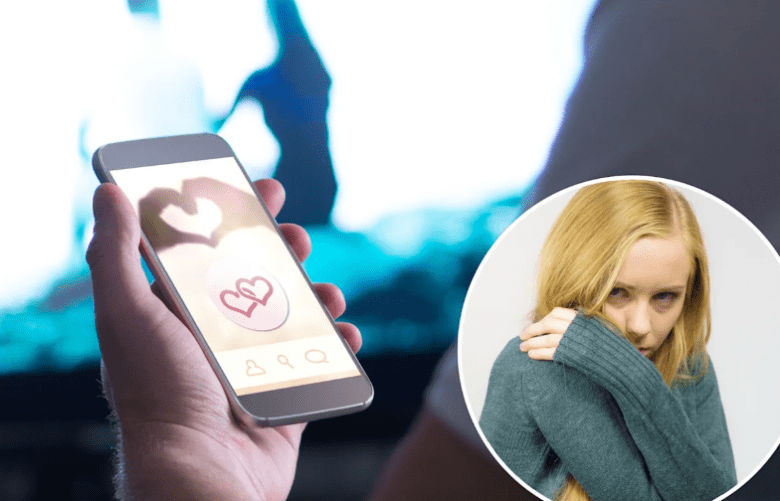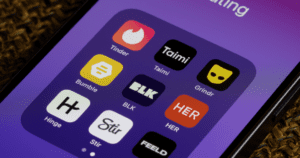Why Generation Z Is Abandoning the Dating App: How Gen Z, App Fatigue, and the Rise of Hinge Alternatives Are Changing Online Dating and How We Meet People
The golden age of the dating app may be coming to an end. What once seemed like a technological revolution for finding love has entered a period of steep decline, and leading the charge away from it is none other than Generation Z.
Born between 1997 and 2012, Gen Zers are tech-native, mobile-first, and social media fluent. But surprisingly, they are also the generation most likely to reject online dating platforms like Tinder, Bumble, and Hinge. For an industry that once boomed during the pandemic and transformed the way we meet people, this shift could be existential.
This article explores the seven most significant reasons why dating apps are losing the Gen Z audience, supported by data, trends, and expert insights. We’ll also explore what’s replacing them — and what it means for the future of dating apps.
1. Swipe Fatigue and App Burnout Are Real Among Gen Z
Let’s start with the most immediate problem: app fatigue.
A 2024 survey by RAW (a new “authentic dating” startup) found that 79% of Gen Z report being emotionally exhausted by the process of swiping, matching, chatting, and ghosting. The swipe fatigue is no longer just a trend — it’s a generational sentiment.
Key frustrations include:
- Endless swiping with no meaningful outcomes
- Shallow profile interactions that feel superficial
- Repetitive conversations and “ghosting” cycles
- Monetized features that hide basic tools behind paywalls
In essence, what was designed to help single adults connect has become, for many users, what they now describe as laborious and scripted.
2. Gen Z Prefers Real-World Interactions Over Apps
The same generation Z that grew up on smartphones is now seeking offline, in-person connections. A joint survey by the Kinsey Institute and DatingAdvice.com in 2024 found that 58% of Gen Z users prefer to meet partners in real life.
This marks a massive shift from the Millennial era, where Tinder, OkCupid, and Match.com reigned supreme. Gen Z is now flocking to:
- Meetups, hobby groups, and friend-of-friend introductions
- IRL events like “singles nights” or co-working spaces
- Platforms like TikTok and LinkedIn to meet people more naturally
They’re turning away from transactional digital dating and seeking intentional ways to form bonds, not just swipe-based matching.
3. The Authenticity Crisis: Feeling Judged on Dating Apps
Another major issue is that Gen Z users simply don’t trust the authenticity of dating apps like Tinder and Bumble.
According to Pew Research and a Statista report from late 2023, Gen Z feels judged, filtered, and misrepresented on apps. The curated nature of profiles and the emphasis on looks lead to:
- Feelings of inadequacy
- Pressure to present a false version of themselves
- Reduced trust in others’ intentions
For a generation that values genuine connection and mental health awareness, dating apps often feel like platforms for performance, not relationships.
4. The Rise and Fall of the Major Platforms
Let’s talk data.
From 2021 to 2025, the app usage of major platforms has dropped dramatically, especially among Gen Z. According to the 2024 Ofcom report:
| Platform | Users Lost (UK only) |
| Tinder | 594,000 |
| Bumble | 368,000 |
| Hinge | 131,000 |
In the U.S., Match Group — the parent company of Tinder, Hinge, and Match.com — saw a 5% drop in paying users in Q1 2025. Their stock value fell from $60 billion in 2021 to just $10 billion by mid-2025.
Even Bumble’s value plummeted by 90% after going public, prompting layoffs and a major rebrand attempt.
Spencer Rascoff, CEO of Match Group, has publicly acknowledged this decline. “Too often, our apps feel like a numbers game,” Rascoff said in a March 2025 letter. “We need to rethink what people want when they’re trying to find love.”
5. TikTok, Instagram, and LinkedIn Are the New Dating Spaces
Surprisingly, many Gen Zers are finding romantic connections not through apps like Tinder, but through social platforms.
On TikTok, DMs, comment threads, and viral stories serve as flirtation hubs. On Instagram, mutual follows lead to direct outreach. Even LinkedIn — once the bastion of professional networking — is becoming a place for romantic interest to emerge through shared communities and career interests.
Why the shift?
- These platforms feel more organic and low-pressure
- There’s often a preexisting context or shared interest
- Communication feels natural rather than forced
In other words, platforms not designed for dating are becoming the new ways to meet people — a telling sign of what Gen Z prioritizes.
6. Cultural Shifts: Traditional Dating Is Cool Again
Forget “Netflix and chill.” The dating world is witnessing a cultural rewind.
According to a 2024 American Survey, Gen Z is placing higher value on traditional dating dynamics, such as:
- Monogamy and long-term commitment
- Clear intentions and emotional safety
- Avoiding casual hookup culture
This cultural shift may be driven by pandemic-induced isolation, rising mental health awareness, and a desire for stability in an uncertain world.
As a result, many dating coaches and experts now advise their Gen Z clients to prioritize face-to-face meetings and community-based introductions over relying on apps like Hinge and Bumble.
7. Will Dating Apps Make a Comeback — or Evolve Into Something Else?
So, what does the future of dating apps look like?
Experts suggest that while online daters aren’t disappearing, the platforms must evolve to stay relevant. Apps will need to integrate features that emphasize:
- Real-world interactions (e.g., local events, mutual friends)
- Matchmaking elements that consider more than photos and hobbies
- AI-powered tools that help screen for compatibility without reducing people to data points
New startups are emerging that focus on intentional ways to date — platforms that blend the safety of tech with the depth of real conversation.
Here’s a comparison of what the next generation of dating apps may include:
| Traditional App Features | Evolving App Features |
| Swipe-based matching | Interest-based discovery and events |
| Paid visibility boosts | AI-assisted conversation coaching |
| Profile-centric interactions | Shared experiences and group dating |
| One-on-one chat only | Community networking and group spaces |
Apps that don’t adapt will likely see continued decline as Gen Z moves away in search of a deeper connection.
Final Thoughts: Gen Z Is Redefining the Dating Game
The trend is clear: dating apps are losing ground, and Gen Z is leading the revolution.
Their collective move away from online dating isn’t just about frustration. It’s about seeking out meaningful connections, pushing back against algorithms, and rediscovering the joy of meeting people in unexpected ways.
For app developers, marketers, and even daters themselves, the message is loud and clear — the old dating game is over.
To truly find love, we’ll need to think beyond the swipe, beyond the profile, and back into the human experience.
FAQs
Q: Why is Generation Z abandoning dating apps?
A: Due to app fatigue, superficial interactions, and the desire for authentic offline connections, Gen Z is looking beyond online dating platforms.
Q: What apps are losing popularity among Gen Z?
A: Tinder, Bumble, and Hinge have seen significant user drops, particularly from younger demographics in the U.K. and U.S., according to the 2024 Ofcom report.
Q: Are any platforms replacing dating apps?
A: Yes. TikTok, Instagram, and LinkedIn are increasingly being used to meet people organically, while new matchmaking services are emerging.
Q: Will dating apps disappear completely?
A: Not likely. But they must evolve to meet changing needs, or risk becoming irrelevant among the next generation of single adults.



